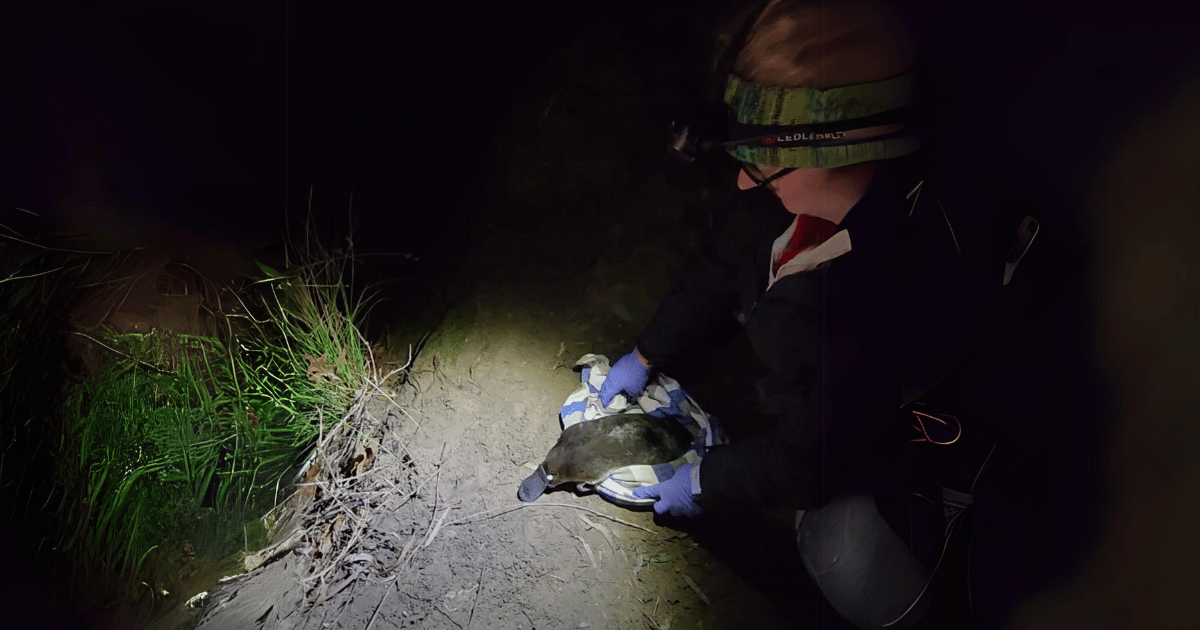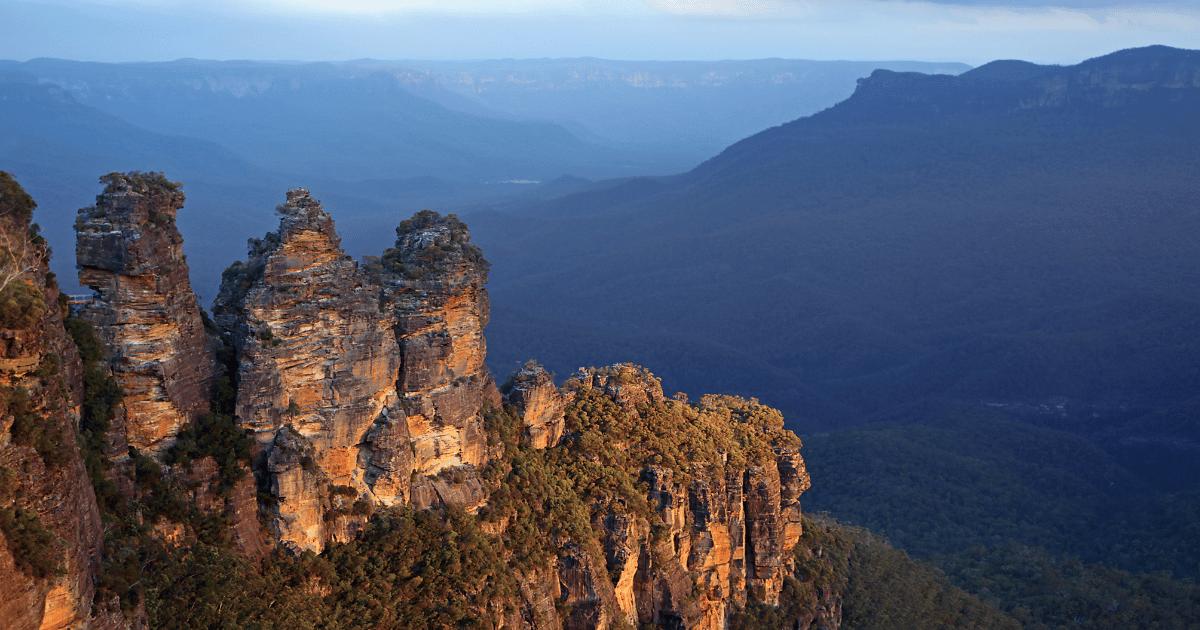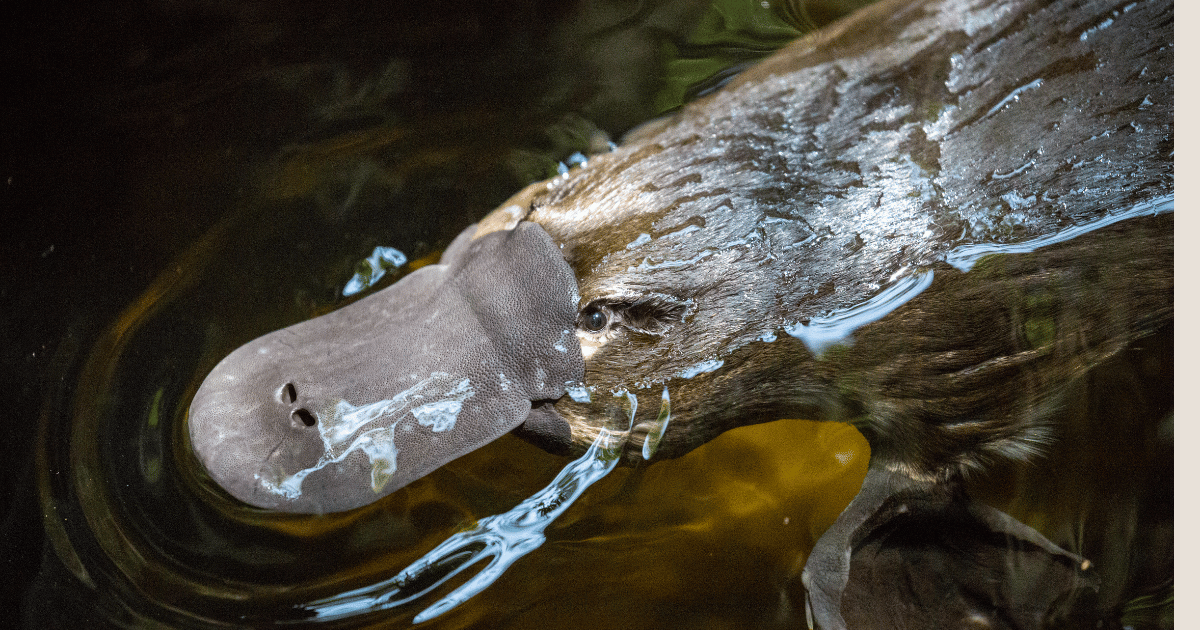
WIRES Research Grant Recipient Aims to Protect Platypus Populations
Wednesday, February 14, 2024
In 2023, Western Sydney University received a WIRES Research Grant to investigate the impact of heavy metal and anthropogenic contaminant exposure on platypus populations in the Blue Mountains World Heritage Area. This research, in collaboration with the Blue Mountains City Council, addresses the critical need to safeguard the unique and iconic platypuses that inhabit the freshwater ecosystems of this renowned World Heritage Area.
The Significance of Platypuses in the Blue Mountains
Platypuses are not just an iconic species; they are vital components of the intricate ecosystems in the Blue Mountains, including the equally iconic Blue Mountains World Heritage Area. While some freshwater creeks in the Blue Mountains remain pristine, major river systems face the threat of urban runoff, impacting the resident wildlife. Previous pollution incidents have resulted in mass mortalities, particularly affecting native crayfish populations.

Project Objectives and Partnerships
The collaborative project with Blue Mountains City Council aims to quantify heavy metal and anthropogenic pollutant loads in sediment, water, macroinvertebrates, and platypus populations. By understanding the long-term impact of these pollutants, the research seeks to protect the future viability of platypus populations in the Blue Mountains World Heritage Area. The project will work closely with Blue Mountains City Council to implement strategies to reduce anthropogenic pollutants entering water systems, mitigating the threat to platypus populations.
Anthropogenic Pollutants and Their Impact
The study focuses on pollutants such as synthetic pyrethroids found in commercial insecticides, known for their toxicity to aquatic species. Previous incidents, such as the mass crayfish kill in Jamison Creek in 2012, highlight the urgency of addressing pollutant levels in Blue Mountains waterways. Crayfish and macroinvertebrates, essential food sources for platypuses, are at risk of bioaccumulating these pollutants, potentially reaching toxic concentrations.
Research Methodology
To achieve the project's goals, a comprehensive research methodology has been outlined:
1. Water, sediment, and macroinvertebrate sampling: Collection and analysis of samples from 30 sites within Jamison, Leura Falls, and Kedumba Creeks, as well as the Kedumba River downstream.
2. Crayfish sampling: Regular inspection for deceased crayfish and analysis of carcases for pollutant concentrations.
3. Platypus sampling: eDNA analysis, mark-capture-release study, and fur and nail samples analysis for pollutant concentrations.
4. Community education: Involving local schools and the community to raise awareness and reduce pollution loads.
Community Involvement and Advocacy
The project emphasises community involvement through educational programs led by Blue Mountains City Council. Engaging schools, students, and the broader community will foster awareness and encourage active participation in addressing pollution issues. The research aims to influence environmental policies and advocate for more stringent regulations on industrial discharge into aquatic ecosystems, considering the broader impact on entire ecosystems.

The WIRES Research Grant awarded to Western Sydney University signifies a crucial step towards understanding and mitigating the impact of anthropogenic pollutants on platypus populations in the Blue Mountains World Heritage Area.
By combining scientific research, community education, and advocacy efforts, the project aims to protect the iconic platypuses and preserve the unique biodiversity and cultural values of this pristine environment. The findings from this research will serve as a foundation for future conservation efforts and contribute to the sustainable management of Australia's natural treasures.
Recent Posts
WIRES launches its first wildlife rehabilitation centre - Mullyang
WIRES Emergency Response in the wake of ex-tropical cyclone Alfred
International Women’s Day Volunteer Spotlight: Shelley
Tropical Cyclone Alfred – Emergency Wildlife Advice
Interview with WIRES Training and Development
Celebrating Women in Science: The Journey of Holly, Wildlife Conservationist and WIRES Team Member
